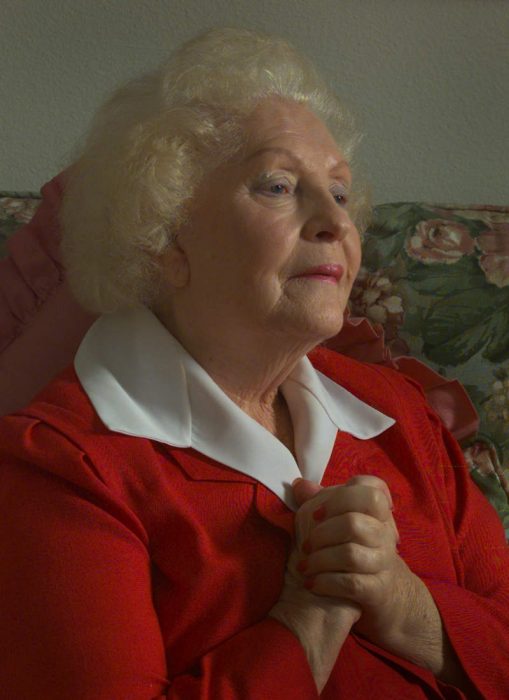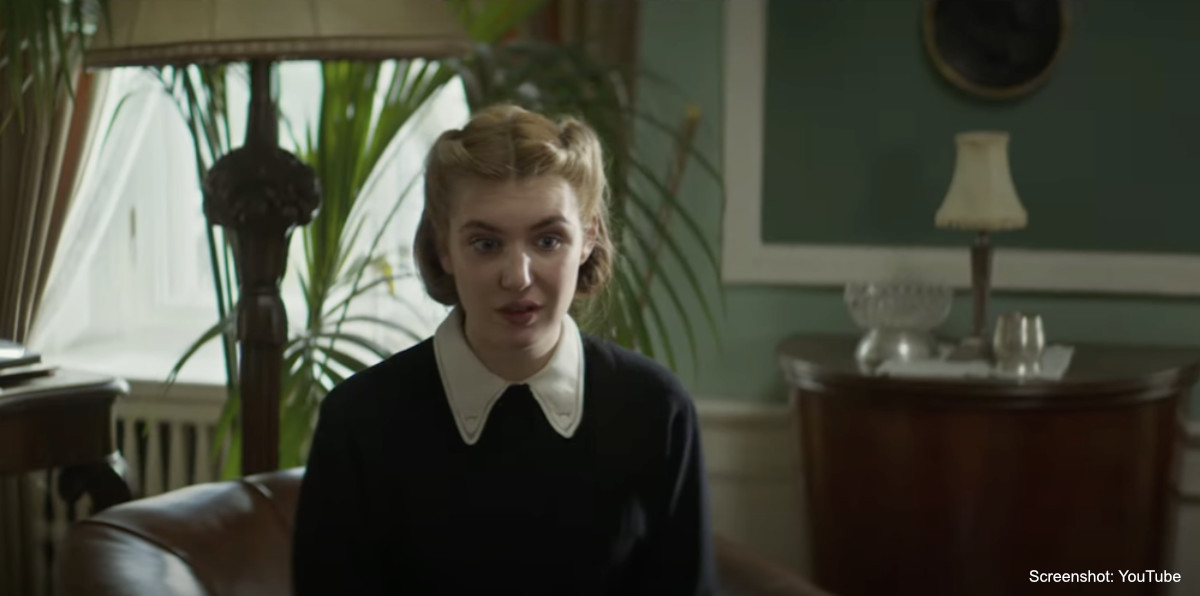The new film “Irena’s Vow” tells the amazing true story of Irena Gut Opdyke (Sophie Nélisse), a Polish Catholic nurse who risked her own life to hide Jews being persecuted by the Nazis during World War II.
Irena was 17 years old and a nursing student living away from home when the Russians and Germans invaded Poland in 1939. She joined a band of Polish resistance fighters, but one day she was seen by Nazi soldiers who chased her, gang-raped her, and beat her unconscious. She recovered and moved back to her family. But two years later, at 19 years old, she was forced to work hard labor at a factory.
When she fainted one day, she gained the compassion of German army Major Eduard Rugemter. Over time, he told her he was moving to a villa outside of town and wanted her to be his housekeeper, where she worked against her will. She had learned Jewish families were about to be forced out of the Jewish ghetto and knew how being at the villa could allow her to help. She sheltered Jewish friends and colleagues in the basement of the major’s house for two years until she was able to help them escape.

ME.Opdyke.hands.D.121198.KRHIrene Gut Opdyke of Yorba Linda has filed a lawsuit against her manager over her life story rights. As a teenage Polish Catholic teenager, she saved the lives of twelve Jewish people she saved by hiding them in the cellar of a German major’s house where she worked as a housekeeper during WWII. Opdyke was hoping to have her story told in a movie. (Photo by Kari Rene Hall/Los Angeles Times via Getty Images)
Despite one man’s asthma nearly exposing them all and marking them for certain death, all was well for a while, and no one discovered the group. However, one of the young women then announced she was pregnant.
Because of the risks that would come with keeping a baby in hiding, the other members of the group convinced the young woman to seek out an abortion for the sake of everyone’s safety.
Irena stood up to all of them, telling them she would not allow the abortion to be carried out. They wanted Irena to gather the supplies that would be needed to commit the abortion, telling her that they couldn’t “bring a baby into this. It would be endangering all of our lives. Yours too.”
They knew that the baby’s cry would certainly give them away. They believed killing that child before birth was the only option.
View this post on Instagram
Irena tells them, “I can’t. I can’t do this. You don’t have to do this.” She asked the pregnant woman, “Ida, everyone’s talking but you. Everyone seems to have an opinion. What about you? Do you want to have this baby?”
Ida said, “Yes, of course. But not now. Not under these conditions. It will be too dangerous for all of us.”
Irena shared with the group that she had once seen a baby ripped out of its mother’s arms by a soldier, tossed into the air, and shot out of the air. There was nothing she could do to stop it.
“I made a vow then that if I ever could save a life, I would,” she said.
The baby, instead of being aborted, was born safely. However, the group was eventually discovered. Irena again stepped in to save them, despite any suffering that it would cause her. She agreed to be the major’s mistress in return for his silence. She would later call that time in her life “worse than rape.”
According to the National Catholic Register (NCR), Irena received several recognitions for her efforts to protect Jewish persons during the Holocaust. Irena’s daughter, Jeannie Smith, told NCR, “[God] would open a path and she would walk in it and then it was up to him to take care of her, and her job was just to do what she was supposed to do — to follow. She kept that her whole life. It just was part of her. It wasn’t even something she had to think about.”
Roman Haller is the baby that Irena saved. Now in his late 70s, he once said, “Irena Gut is like a second mother to me. Without her, I wouldn’t be alive.”
Lila Rose, founder and president of Live Action, reacted to the film, saying, “It’s incredible what one person can do if they are willing to stand up for life, especially when it may be painfully difficult and unpopular. I did not expect the ending of this clip and it makes me marvel at how fragile life and death decisions can be – needing that one person to stand in the gap.”







